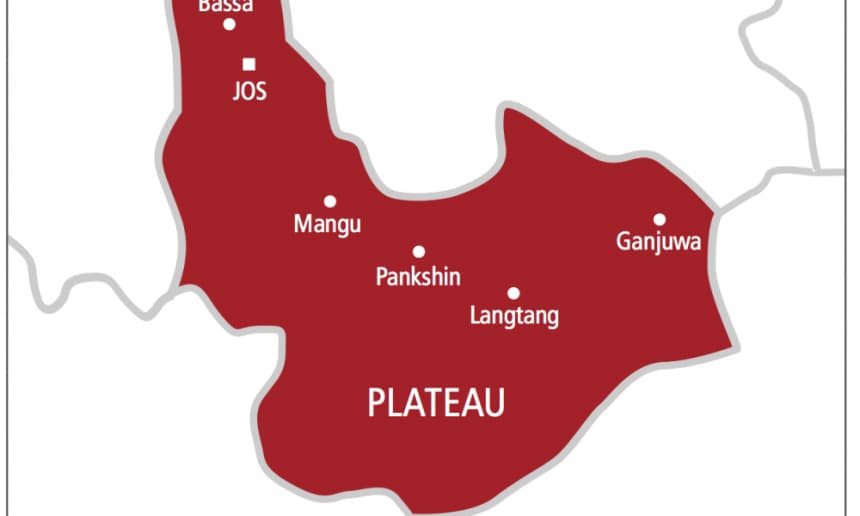On the evening of June 20, 2025, a group of 31 travelers from the Basawa community in Zaria, Kaduna State, faced a horrific attack while en route to a wedding in Qua’an Pan Local Government Area (LGA) of Plateau State. The group, traveling in an 18-seater bus reportedly owned by Ahmadu Bello University (ABU), Zaria, was ambushed around 8:00 p.m. near Mangun Village in Mangu LGA. The incident has left 12 people dead and 11 others injured, deepening the grief of a community already preparing for a joyous occasion.
The travelers, unfamiliar with the terrain, reportedly took a wrong route and stopped to ask for directions, a decision that proved fatal. According to survivor Ibrahim Umar, a mob suddenly surrounded the bus and launched a violent attack, using weapons to kill and injure passengers. The assailants’ motives remain unclear, but the attack aligns with a pattern of communal violence that has plagued Plateau State in recent months.
The 11 injured victims were rushed to Mangu General Hospital, where they are currently receiving treatment for various injuries sustained during the assault. The bodies of the 12 deceased were also deposited at the hospital’s morgue, as confirmed by local authorities and community leaders. The hospital has become a focal point for grieving families and community members seeking answers about the fate of their loved ones.
The Chief Imam of Jama’atu Izalatil Bid’a Wa’ikamatis Sunnah (JIBWIS), Sheikh Suleiman Haruna, addressed the tragedy, confirming the details of the attack and expressing condolences to the affected families. He noted that the victims were all members of the Basawa community, a close-knit group in Zaria, and their loss has sent shockwaves through the region. Community leaders have called for calm while urging authorities to investigate the incident thoroughly.
Conflicting reports have emerged regarding the death toll, with one source citing a post by security analyst Zagazola Makama claiming seven fatalities. However, the majority of accounts, including those from survivors and local leaders, corroborate the higher figure of 12 deaths. This discrepancy highlights the challenges of obtaining accurate information in the immediate aftermath of such chaotic events.
The attack in Mangu LGA is part of a broader wave of violence in Plateau State, where communal clashes have claimed numerous lives in recent weeks. Just days earlier, reports indicated deadly incidents in neighboring Bokkos LGA, where similar attacks left communities reeling. The persistent insecurity has raised concerns about the safety of travelers and residents in the region, particularly in rural areas like Mangun Village.
Local authorities in Mangu LGA have yet to release an official statement on the incident, but security forces are reportedly investigating the attack. No group has claimed responsibility, and the identities of the attackers remain unknown. Residents have expressed frustration over the lack of adequate security measures to prevent such tragedies, especially along remote routes frequented by travelers.
The Basawa community in Zaria is now in mourning, with preparations for the wedding replaced by funeral arrangements. Families of the victims are grappling with the sudden loss of loved ones, many of whom were young adults and breadwinners. The emotional toll on the community is compounded by the uncertainty surrounding the recovery of the injured and the prospect of justice for the deceased.
This tragedy underscores the urgent need for enhanced security in Plateau State, where recurring violence has disrupted lives and livelihoods. Analysts point to underlying issues such as land disputes, ethnic tensions, and resource competition as drivers of the region’s instability. Without comprehensive efforts to address these root causes, similar incidents may continue to devastate communities.
The attack has also sparked discussions about the safety of inter-state travel in Nigeria, particularly for groups traveling for social events like weddings. Many are calling for better coordination between state governments and security agencies to protect vulnerable travelers. Proposals include increased patrols, improved road signage, and community engagement to prevent misunderstandings that could escalate into violence.
As the investigation unfolds, the focus remains on supporting the victims’ families and ensuring the injured receive adequate medical care. The Mangu General Hospital is reportedly stretched thin, with staff working tirelessly to treat the survivors. Community organizations and religious leaders are rallying to provide assistance, including food, clothing, and counseling for those affected.
The broader implications of this attack extend beyond Plateau State, raising questions about Nigeria’s ability to curb communal violence and protect its citizens. Public outrage is growing, with many demanding accountability from both state and federal authorities. Social media platforms, including X, have seen an outpouring of condolences and calls for action, reflecting the national impact of the tragedy.
For now, the Basawa community and the families of the victims are left to navigate an unimaginable loss. The wedding that was meant to unite two families has instead become a symbol of grief and a stark reminder of the fragility of peace in Plateau State. As the nation watches, the hope is that this tragedy will spur meaningful action to prevent further bloodshed.




